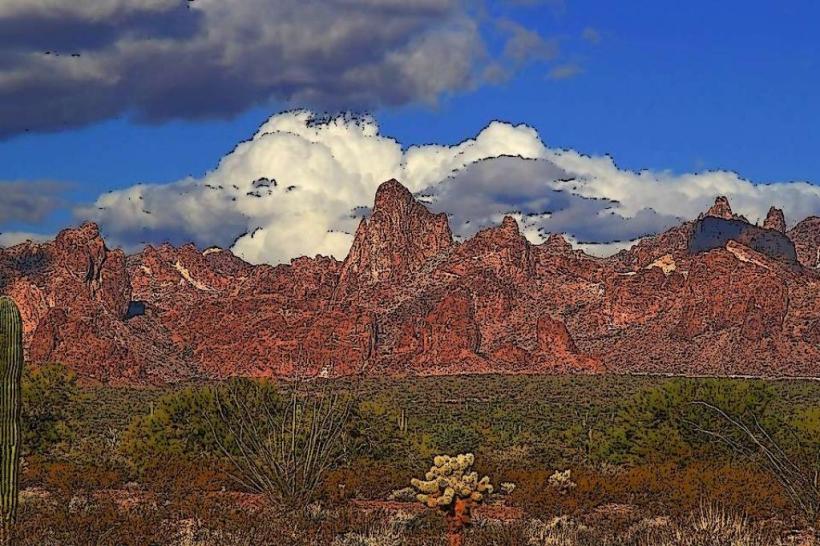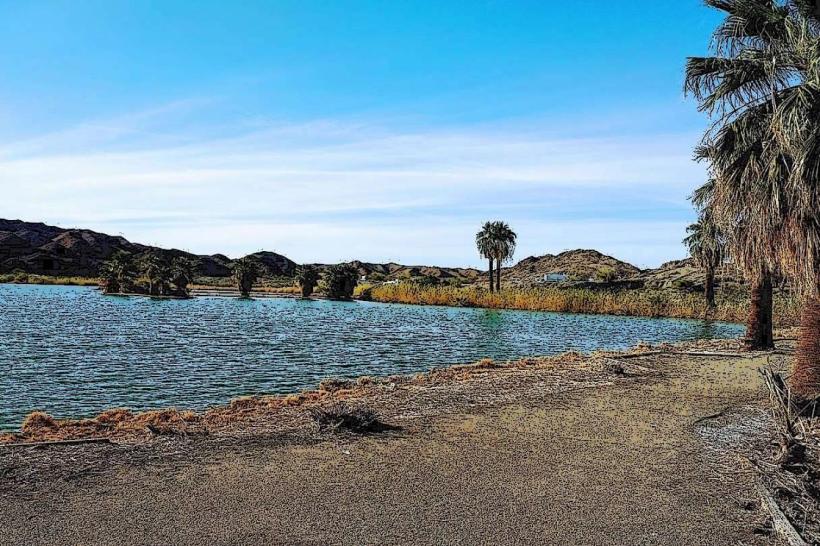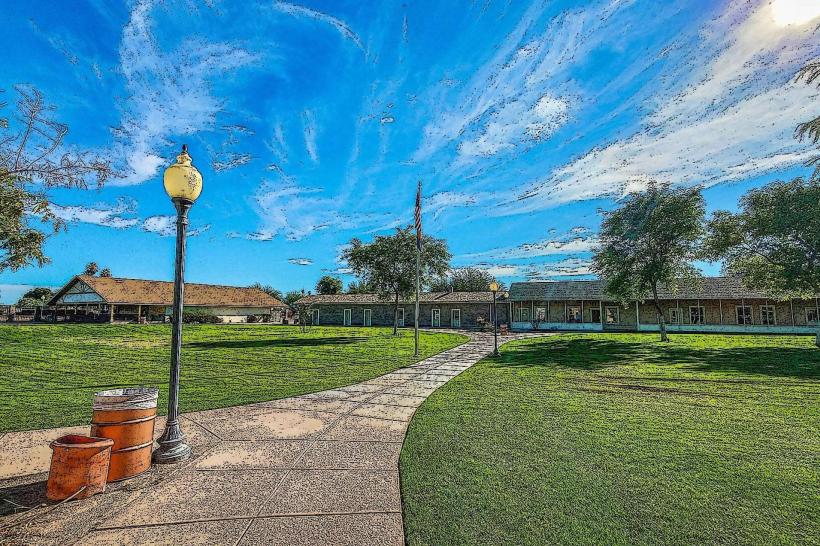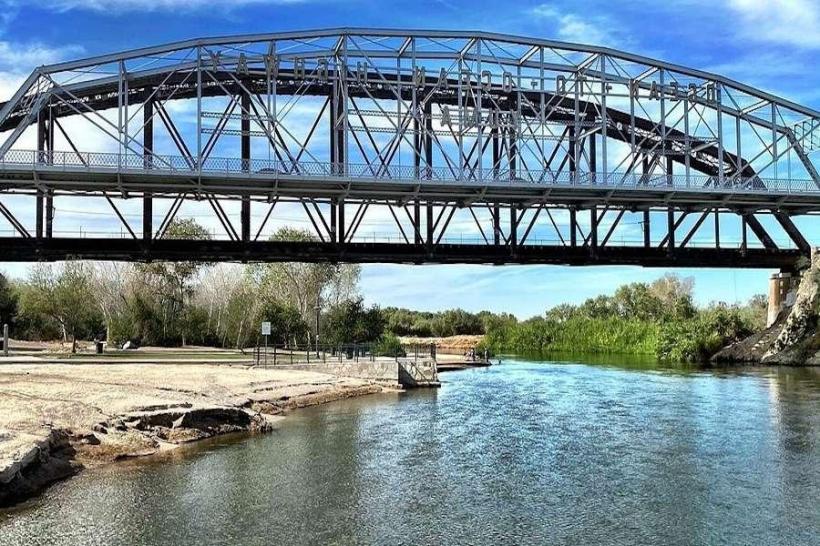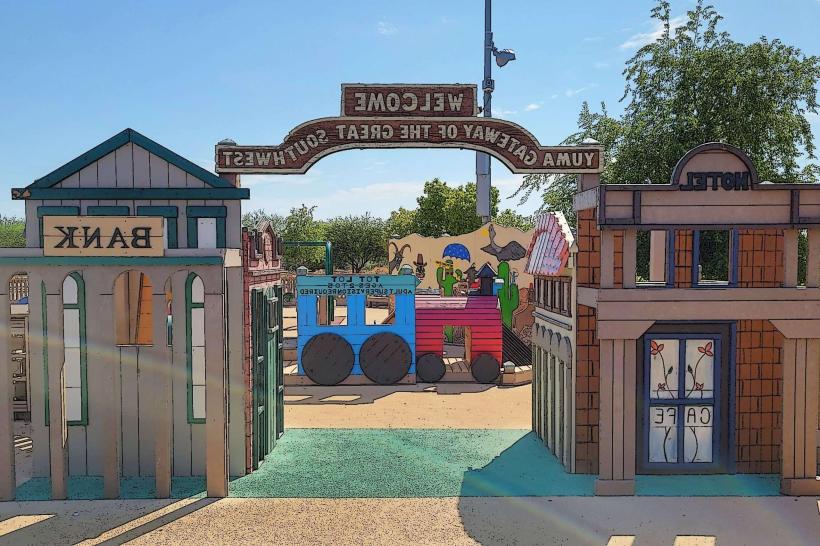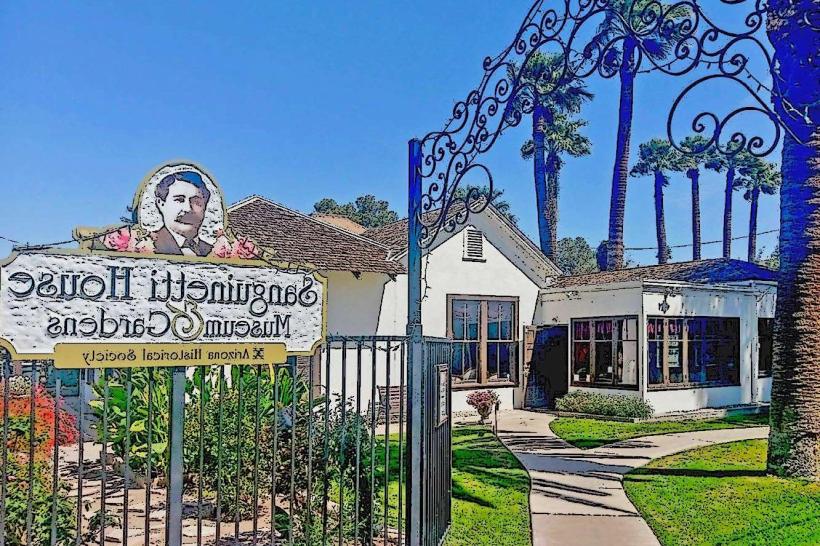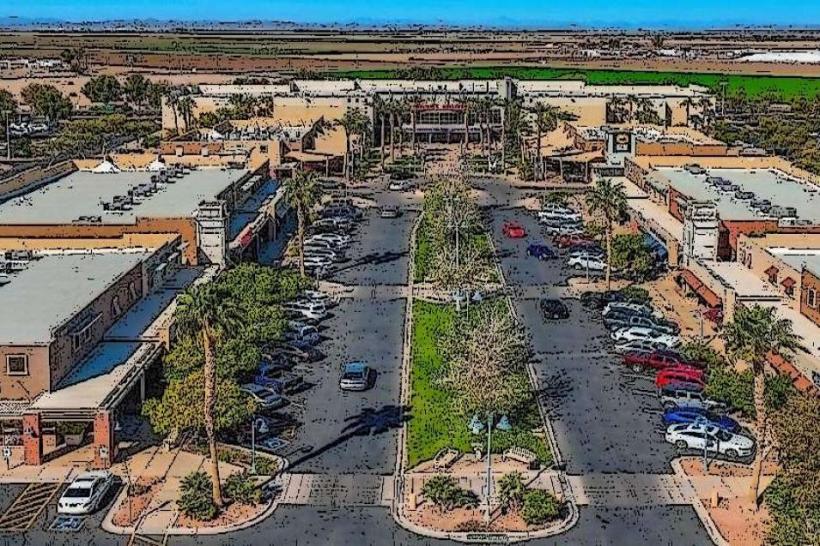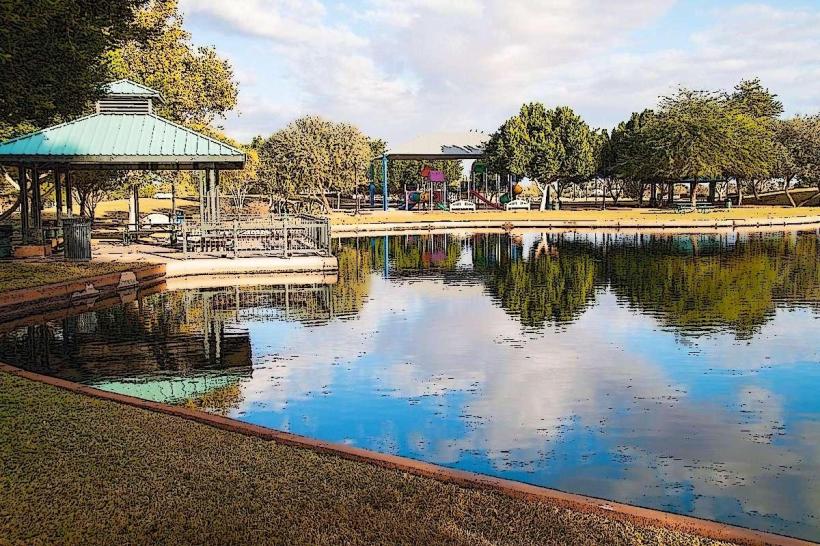Information
Landmark: Yuma Territorial Prison State Historic ParkCity: Yuma
Country: USA Arizona
Continent: North America
Yuma Territorial Prison State Historic Park, Yuma, USA Arizona, North America
Yuma Territorial Prison State Historic Park – In Detail
The Yuma Territorial Prison State Historic Park is one of Arizona's most compelling historical landmarks. Located on a bluff overlooking the Colorado River in Yuma, this former frontier prison offers an immersive look into the gritty realities of 19th-century incarceration in the American Southwest. Opened in 1876 and closed in 1909, the facility now serves as a museum, allowing visitors to walk through original cell blocks, solitary confinement cells, and guard towers that echo the hardships, resilience, and unique stories of the inmates who once lived there.
🏞️ Geographic and Historical Setting
Location: Along the Colorado River in downtown Yuma, Arizona.
The prison was strategically built at the confluence of the Gila and Colorado Rivers, making escape almost impossible due to swift waters and harsh desert surroundings.
This location later made it a vital military and civilian stronghold in the Arizona Territory.
🏛️ Construction and Infrastructure
Built from 1876 to 1909, with inmate labor being used to construct the thick adobe, granite, and iron-barred cells.
The prison was considered highly advanced for its time, boasting:
Electric lighting (uncommon in the region in the late 1800s)
Forced ventilation systems
Running water, including showers
A library with over 2,000 books, making it one of the first prison libraries in the western U.S.
Though progressive in utilities, conditions were harsh, especially in the “Dark Cell”, a solitary confinement space that was pitch-black, poorly ventilated, and reserved for the most difficult inmates.
👮 Daily Life and Inmates
More than 3,000 inmates were housed during the prison’s 33-year operation, including 29 women.
Crimes ranged from murder, grand larceny, and burglary to polygamy and adultery.
Inmates worked daily at hard labor - quarrying rock, making adobe bricks, repairing roads, or working on the prison’s expansion.
Some prisoners were also allowed to study, learn trades, and attend religious services.
Despite its reputation as a "hellhole," the prison was relatively humane for its time, with structured meals, medical care, and a focus on order.
👤 Notable Prisoners
Pearl Hart: One of the few female stagecoach robbers in the American West.
William Flake: A Mormon leader imprisoned for practicing polygamy.
"Buckskin" Frank Leslie: A gunslinger known for his erratic behavior and violent past.
Ricardo Flores Magón: A Mexican revolutionary whose writings influenced the Mexican Revolution.
🏚️ Preserved Structures & Exhibits
Visitors today can explore:
Cell Blocks: Rows of iron-barred cells with original iron bunk frames and concrete floors.
The Dark Cell: A steel-doored, windowless cell used for solitary confinement; candles and shackles recreate its chilling effect.
Guard Tower: Offers panoramic views of the Colorado River and surrounding terrain.
Visitor Center Museum: Displays original artifacts, weapons, inmate photographs, uniforms, and mugshots. Interactive exhibits allow guests to experience the booking process and learn inmate stories.
Prison Cemetery: Final resting place of over 100 inmates, most of whom died of tuberculosis or other diseases.
👻 Paranormal Reputation
The prison is considered one of the most haunted sites in Arizona.
Numerous reports mention ghostly apparitions in the Dark Cell, including:
A little girl in red.
Shadow figures.
Sudden drops in temperature and flickering lights.
It has been featured on paranormal investigation shows and in Western folklore.
🎟️ Visitor Information
Hours:
Winter (Oct–May): 9:00 AM – 4:30 PM
Summer (Jun–Sep): 8:30 AM – 4:00 PM
Admission:
Adults (14+): ~$10
Seniors (62+): ~$9
Youth (7–13): ~$5
Children under 6: Free
Amenities:
Parking, picnic areas, restrooms, gift shop
ADA-accessible pathways
Ranger-led tours and interpretive signs
🥾 Walking Paths and Nearby Attractions
Interpretive Trails: Surround the complex, offering views of the wetlands and the Colorado River.
Nearby Sites:
Colorado River State Historic Park
Sanguinetti House Museum
Ocean-to-Ocean Bridge
📜 Cultural and Educational Significance
Represents early penal philosophy in the American Southwest.
A symbol of the harsh yet evolving criminal justice system in frontier territories.
Offers insight into gender roles (as women were also imprisoned), ethnic diversity among inmates, and early reform efforts.
It has appeared in films, literature, and history curriculums, preserving its legacy for future generations.
✅ Summary
The Yuma Territorial Prison State Historic Park is more than a relic of Arizona’s Wild West-it’s a deeply immersive historical experience that combines architecture, social history, and eerie legend. It encapsulates the spirit of endurance, discipline, and transformation amid the unforgiving landscape of the American frontier. Visitors walk through original cells, see the tools and conditions of inmates, and gain a profound sense of what life was like for those confined behind its iron gates. A visit to this park offers not just education, but also a visceral connection to one of the state’s most hauntingly fascinating sites.

